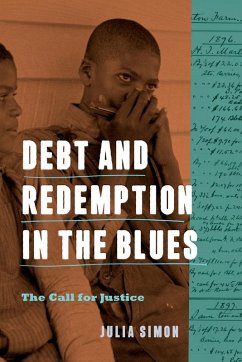This volume explores concepts of freedom and bondage in the blues and argues that this genre of music explicitly calls for a reckoning while expressing faith in a secular justice to come. Placing blues music within its historical context of the post-Reconstruction South, Jim Crow America, and the civil rights era, Julia Simon finds a deep symbolism in the lyrical representations of romantic and sexual betrayal. The blues calls out and indicts the tangled web of deceit and entrapment constraining the physical, socioeconomic, and political movement of African Americans. Surveying blues music from the 1920s to the early twenty-first century, Simon's analyses focus on economic relations, such as sharecropping, house contract sales, debt peonage, criminal surety, and convict lease. She demonstrates how the music reflects this exploitative economic history and how it is shaped by commodification under racialized capitalism. As Simon assesses the lyrics, technique, and styles of a wide range of blues musicians, including Bessie Smith, Blind Lemon Jefferson, Big Bill Broonzy, Muddy Waters, B. B. King, Albert Collins, and Kirk Fletcher, she argues forcefully that the call for racial justice is at the heart of the blues. A highly sophisticated interpretation of the blues tradition steeped in musicology, social history, and critical-cultural hermeneutics, Debt and Redemption not only clarifies blues as an aesthetic tradition but, more importantly, proves that it advances a theory of social and economic development and change.
Hinweis: Dieser Artikel kann nur an eine deutsche Lieferadresse ausgeliefert werden.
Hinweis: Dieser Artikel kann nur an eine deutsche Lieferadresse ausgeliefert werden.




![Everything about Playing the Blues Book/Online Audio [With Play-Along CD with 12 Jam Tracks] Everything about Playing the Blues Book/Online Audio [With Play-Along CD with 12 Jam Tracks]](https://bilder.buecher.de/produkte/35/35654/35654666m.jpg)



